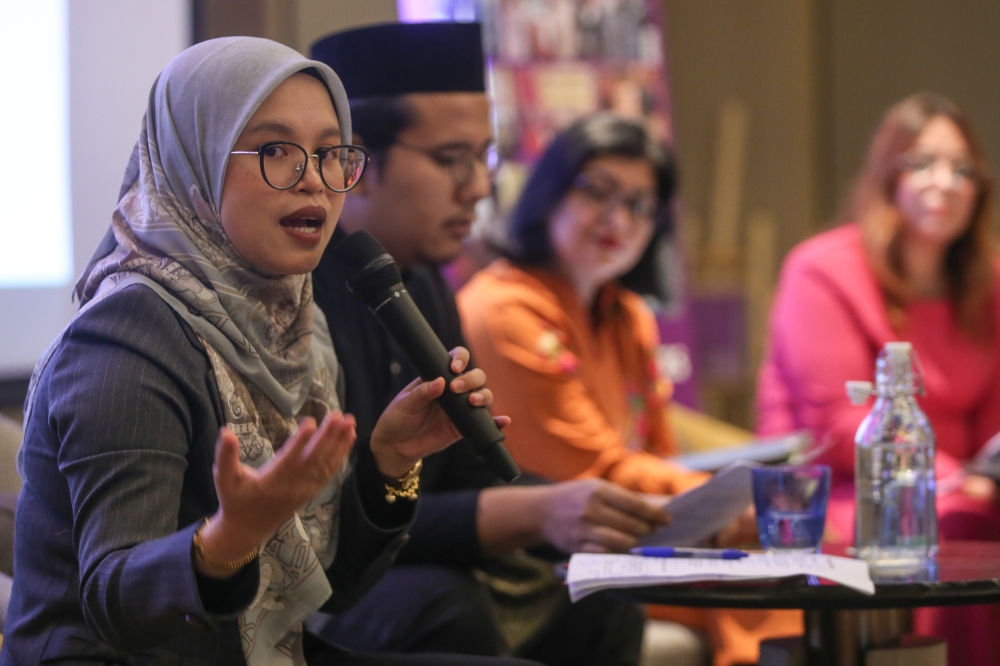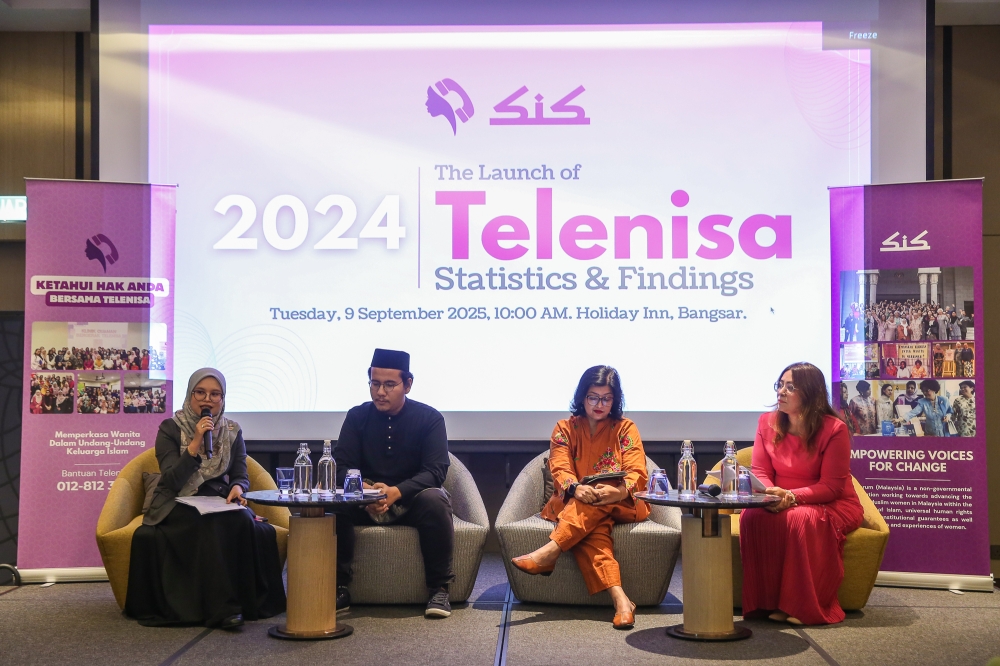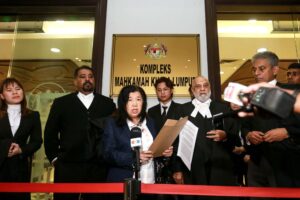KUALA LUMPUR, Sept 11 — The top three reasons why Muslims divorce in Malaysia in 2024 are communication breakdown, domestic violence, and the husband’s failure to provide financially, women’s rights advocacy group SIS Forum’s (Malaysia) latest report has said.
In SIS Forum’s report on its free legal clinic Telenisa’s findings about 188 clients last year, communication breakdown remains a leading cause for divorce, just like in previous years.
At the report’s launch yesterday, SIS Forum communications manager Ameena Siddiqi said a closer look at Telenisa’s statistics showed that such communication breakdown happened across the board, whether Muslim couples were in urban or rural areas, and regardless of their income and education levels.
“A lot of women reported lack of dialogue about finances, emotional needs not met,” she said, adding that unresolved conflicts between married couples also led to such communication breakdown and eventually divorces.
She suggested that pre-marital courses should include lessons on how to better communicate with each other.
In its report, SIS Forum said there is an urgent need for marital support programmes that teaches communication and financial management skills, as well as equip couples with tools to peacefully resolve conflicts without violence.
Why do domestic violence cases happen?
Women’s Aid Organisation (WAO) executive director Nazreen Nizam said Telenisa’s findings match her organisation’s statistics, where WAO received 1,326 domestic violence cases in 2024, including 30 cases who needed to be brought into WAO’s shelters.
Nazreen said domestic violence cases is a serious and recurring problem in Malaysia, and it could be in the form of physical, emotional, sexual, social or even financial violence.
She gave examples of financial violence (such as when the husband fails to provide maintenance, when the wife is disallowed to work, when the husband holds on to the working wife’s debit card), and psychological violence such as giving the silent treatment.
“When we talk about the issue of domestic violence, it happens because of power imbalance in the relationship. Because sometimes you can talk about contributing factors, whether the husband is alcoholic, a drug addict, poverty — but the root cause is the power imbalance in that relationship,” she said.
In explaining how some women have to be dependent financially on their husbands, she said some women give up their jobs to care for their children and household, while the husbands can continue their work and career growth.
She said domestic violence is a structural issue caused by gender inequality, noting societal attitude where such cases are seen as a “small matter” or household disputes to be sorted out by couples instead of being made a subject of police reports.
She said women in domestic violence cases face obstacles, such as being gaslighted or being victim blamed by family members or friends who ask them to just “bersabar” or be patient.
“When they say bersabar, indirectly it means they blame the women and they normalise abuse. They don’t see the problem that women are facing is legitimate or valid, or needing someone to step in and help,” she said, adding that this word bersabar could pop up even at police stations or other places where women sought for help in such cases.

Syarie Lawyer Nor Liana Ali speaks during the ‘Highlights of Issues Throughout’ forum at Holiday Inn Bangsar in Kuala Lumpur on September 09,2025. — Picture by Yusof Isa
Empowering domestic abuse victims, instead of saying ‘bersabar’
Shariah and civil lawyer Nor Liana Ali said many of her clients had been told to be patient, especially by family members who wanted to prevent divorces as it was still considered taboo in society. She said there were wives who had put up with abuse for up to even 10 to 40 years before deciding to divorce.
Nor Liana said domestic violence cases may not necessarily be intentional or due to a spouse being hot-tempered from the start, but could happen unintentionally when there is an opportunity such as a spouse having more financial strength.
For example, she said there was a husband who became the main breadwinner with high pay and started to abuse the wife, after the wife quit her job due to her child.
When the wife came to her for help, Nor Liana encouraged her to start driving again after having been driven around by the husband over the years, and to rebuild her personal confidence and personal strength.
“’Now you start driving again, you go out and buy your own groceries, find your own happiness, jogging,” she said when describing what she told the woman, adding that this woman has now started working again and learnt to stand up for herself by being assertive to stop any further abuse from the husband.
Here are SIS Forum’s proposals in its 2024 Telenisa report on how to address domestic violence issues in marriages:
- Comprehensive public education (on marital rights, personal boundaries, impact of all forms of violence);
- Expanded, easily accessible support services (e.g. shelters, trauma counselling, legal aid, emergency financial assistance);
- Improve law enforcement (safe reporting systems, training so frontline officers will respond with greater sensitivity and empathy);
- Empower the community (to detect, prevent domestic violence and give support).
*If you need free legal advice on Islamic family law, contact SIS Forum’s Telenisa helpline (012-812 3424) by WhatsApp text or voice call.
*Contact WAO (03-3000 8858) for free advice, counselling and shelters. Talian Nur (15999) for domestic violence, child abuse cases.
*Other organisations that provide counselling for women include All Women’s Action Society (03-7877 4221), Perak Women for Women (05-546 9715), Sarawak Women for Women Society (082-368 853), Sabah Women’s Action Resource Group (088-269 291), Women Centre for Change (WCC) (04-398 8340 and 04-228 0342).






